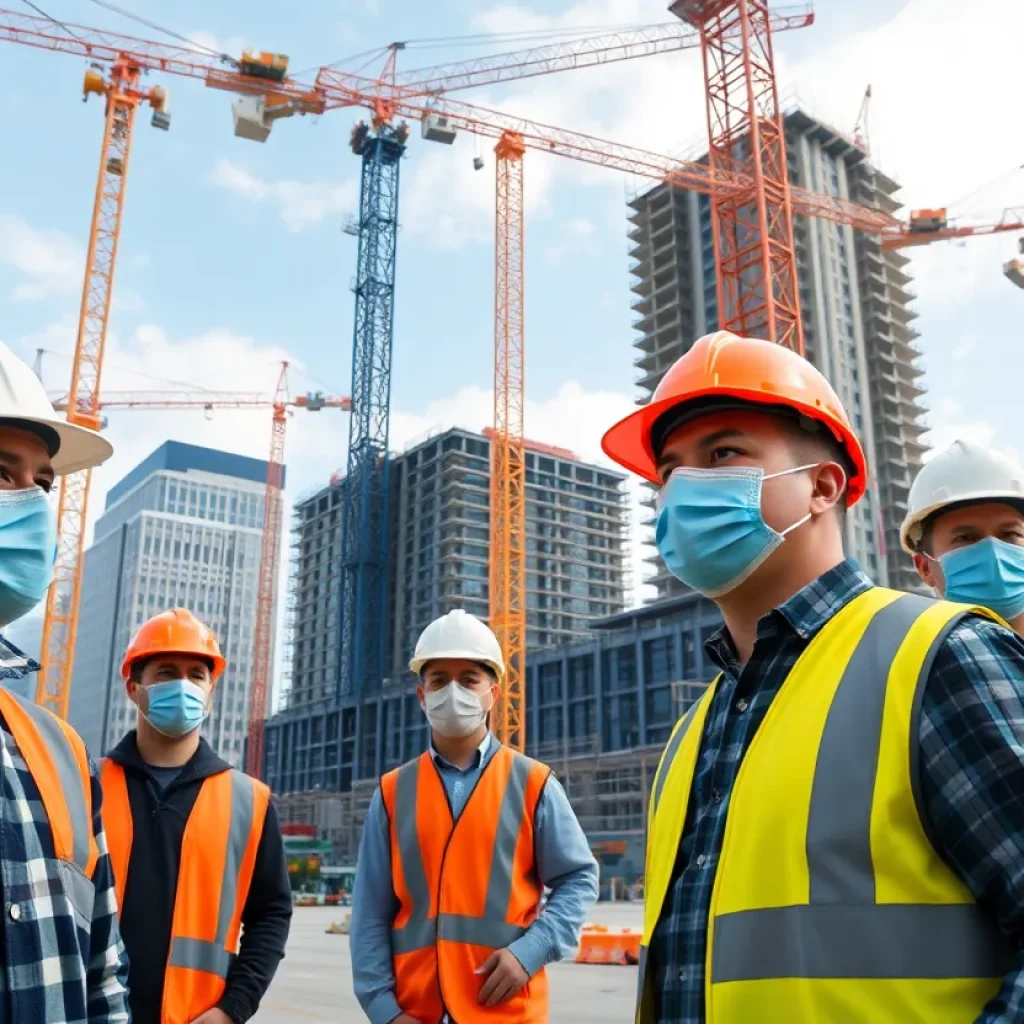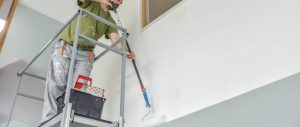Detroit: Construction Industry Shifts Gears After COVID-19 Shutdown
Just a few months back, Detroit was buzzing with construction projects, as crews worked overtime to meet growing demand. Workers were being brought in from other states to keep things moving. But then, on March 24, everything changed with a flash—due to a sweeping executive order from Governor Gretchen Whitmer aimed at tackling the coronavirus pandemic, most building activity came to a screeching halt.
The Big Switch
It was like flipping a light switch, according to Patrick Devlin, who represents about 100,000 skilled trades workers with the Michigan Building Trades Council. As the state grappled with the health crisis, construction sites became ghost towns. Fast forward to Thursday, and those lights flickered back on as the construction and real estate industries were given the green light to resume operations—with a bunch of new safety rules in place.
Back to Work, But in a New Way
Experts warn that this restart won’t be as simple as flipping a switch on and off. Instead, it’s going to be a gradual ramp-up. As the days unfold, we’re likely to see more clarity regarding budget impacts, project timelines, and potential delays in the supply chain. Safety is also a key concern—as crews return to work, they’ll be adapting to a “new normal” involving face masks, frequent hand sanitizing, and physical distancing.
“I never underestimate the grit or the resilience of Detroit,” remarked Eric Larson, CEO of the Downtown Detroit Partnership. Yet, he also acknowledged that this recovery would come with its share of challenges and perhaps, even some pain. The ongoing struggle will be to regain lost momentum, especially in a city that has worked hard to reinvent itself in recent years.
What’s Happening On the Ground?
Major projects like Bedrock’s Hudson’s site and Ford Motor Co.’s Corktown campus are moving forward, although some smaller developments might have suffered irreparable damage during the shutdown. The Home Builders Association of Michigan is optimistic, with CEO Bob Filka noting a 10% increase in residential construction permits compared to last year, signaling strong demand for housing.
Mayor Mike Duggan announced that work would recommence on a series of new housing projects, specifically city-backed initiatives that aim to invest a whopping $120 million. Almost half of the 170 planned housing units will be affordable, addressing the urgent need for accessible living options in a city still reeling from the pandemic’s economic impact.
Health Protocols in Play
Construction sites will need to adhere to strict health protocols, such as appointing supervisors for COVID-19 control, conducting daily health screenings, and ensuring handwashing stations are available. Ryan Maibach, who heads Southfield-based construction firm Barton Malow, expressed that it’s vital to ensure safety measures are followed. However, he raised concerns about how comfortable workers will feel returning to sites.
Devlin stated that around 65% of union members had been left out of work during the shutdown and indicated mixed feelings about returning. The lack of available COVID-19 testing remains a significant concern for the industry; testing will play a crucial role in making everyone feel safe again.
Ready, Set, Go!
As of Thursday, Barton Malow was gearing up to reopen construction sites across its 123 active projects in Michigan. This includes the Hudson’s site, where foundational work had just begun before the shutdown. The plan is to resume on Monday with a full crew, ensuring that critical foundational work continues.
Ford is also gearing up to restart its redevelopment project at the Michigan Central Depot, keeping in mind that adjustments may be necessary for timelines and budgets.
Meanwhile, Fiat Chrysler is aligning their own construction efforts with a planned resumption of auto production, which is set to create 3,850 new jobs for locals at a new assembly plant.
The Future Is Uncertain
As larger projects resume, there are still questions swirling about how smaller initiatives will make it through this storm. Larson from Larson Realty Group emphasized concerns over what happens to the less robust projects that may struggle moving forward. But despite all the uncertainties, he believes in Detroit’s capacity to bounce back, stating, “I do believe it’s more of a pause, though.”
In these times of profound changes, all eyes are on Detroit to see how quickly it can adapt, regroup, and ultimately continue its journey toward recovery.
Author: STAFF HERE NOVI WRITER
The NOVI STAFF WRITER represents the experienced team at HERENovi.com, your go-to source for actionable local news and information in Novi, Oakland County, and beyond. Specializing in "news you can use," we cover essential topics like product reviews for personal and business needs, local business directories, politics, real estate trends, neighborhood insights, and state news affecting the area—with deep expertise drawn from years of dedicated reporting and strong community input, including local press releases and business updates. We deliver top reporting on high-value events such as Motor City Comic Con, Michigan State Fair, and Novi Home and Garden Show. Our coverage extends to key organizations like the Novi Chamber of Commerce and Novi Community Foundation, plus leading businesses in automotive, technology, and manufacturing that power the local economy such as Gentherm, Stoneridge, and Daifuku North America. As part of the broader HERE network, including HEREDetroitMI.com, HEREGrandRapids.com, HERENorthville.com, and HEREPlymouth.com, we provide comprehensive, credible insights into Michigan's dynamic landscape.









